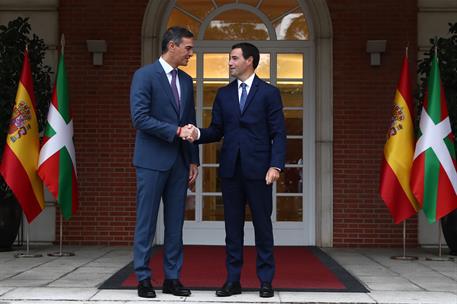
Pedro Sánchez’s government has once again raised eyebrows with its latest agreements with the Basque Nationalist Party (PNV), underscoring a recurring pattern of using the transfer of powers as a political bargaining chip. The upcoming transfers, scheduled for December 16, involve competencies in coastal management and cinematography. While these areas may seem legitimate for regional autonomy, the timing and nature of these deals point to a deeper, more contentious narrative.
Sánchez’s reliance on the PNV has been a cornerstone of his tenure, with the Basque party’s support essential for the PSOE-led government’s stability. However, these transfers, framed as steps towards decentralisation, appear less about genuine governance improvements and more about satisfying partisan interests. The transfer of competencies should serve the greater good, not as a currency to prolong a government’s tenure. Yet, under Sánchez’s leadership, this transactional approach has become the norm.
The timing of these agreements is particularly telling. They come at a moment of political vulnerability for Sánchez, amid swirling scandals that have cast a long shadow over the PSOE. By securing the PNV’s backing, even through questionable concessions, Sánchez ensures his government’s survival, albeit at a cost that may not favour the broader public interest.
The optics of these deals are problematic. Basque President Iñigo Urkullu described the political environment in Madrid as a “microclimate,” detached from the realities of ordinary citizens. Indeed, instead of addressing Spain’s pressing challenges, Sánchez’s government appears consumed by the machinations of political survival. The transfer of powers to the Basque Country, negotiated behind closed doors, comes across as a political transaction cloaked in decentralisation rhetoric, rather than a genuine effort to improve public administration.
This lack of transparency fuels suspicions about the true motives behind these agreements. While decentralisation is a cornerstone of Spain’s governance model, the technical and economic justifications for some of these power transfers remain tenuous. Critics argue that they are more about consolidating political alliances than fostering meaningful regional governance.
Adding to the controversy is the PSOE’s long-standing reputation for corruption, which remains a point of contention in Spanish politics. Over the years, a series of unresolved scandals has eroded public trust in the party’s leadership. Against this backdrop, deals like the recent PNV agreements only heighten public scepticism. For many, these transfers signal not just political opportunism but a deeper erosion of ethical governance standards.
The implications of these deals extend beyond mere political survival. Promises of greater autonomy for the Basque Country, ostensibly under the guise of improved local governance, carry significant risks. By granting such concessions without clear boundaries, Sánchez’s government risks emboldening separatist sentiments, threatening the cohesion of the Spanish state. What may seem like a pragmatic political arrangement today could have far-reaching consequences for Spain’s unity and stability in the future.
Moreover, the transactional nature of these agreements highlights a deeper issue within the PSOE-led government: a lack of a unifying national vision. By focusing on power consolidation at any cost, the government sidelines the broader interests of Spanish citizens. Instead of fostering unity and addressing structural challenges, it appears trapped in a cycle of short-term political deals that prioritise expediency over substance.
The transfer of powers to the PNV is emblematic of this flawed approach. Coastal management and cinematography are areas that could, in theory, enhance regional governance. However, the manner in which these agreements have been negotiated—shrouded in secrecy and perceived as political favours—undermines their legitimacy. It raises the question of whether such deals are genuinely in the public interest or merely tools to secure political allegiances.
Ultimately, these political manoeuvres are symptomatic of a deeper malaise within Sánchez’s government. By prioritising partisan interests over transparency and national cohesion, the PSOE risks eroding public trust in Spain’s democratic institutions. Citizens are left to bear the consequences of a governance model driven by convenience rather than conviction, where the needs of the many are overshadowed by the ambitions of the few.
As scandals continue to swirl around the PSOE, the recent agreements with the PNV serve as a stark reminder of the challenges facing Spain’s political system. Without greater transparency and a renewed commitment to ethical governance, such deals will continue to undermine the country’s stability, leaving citizens to grapple with the fallout of a government seemingly more interested in political survival than meaningful progress.



 Subscribe
Subscribe